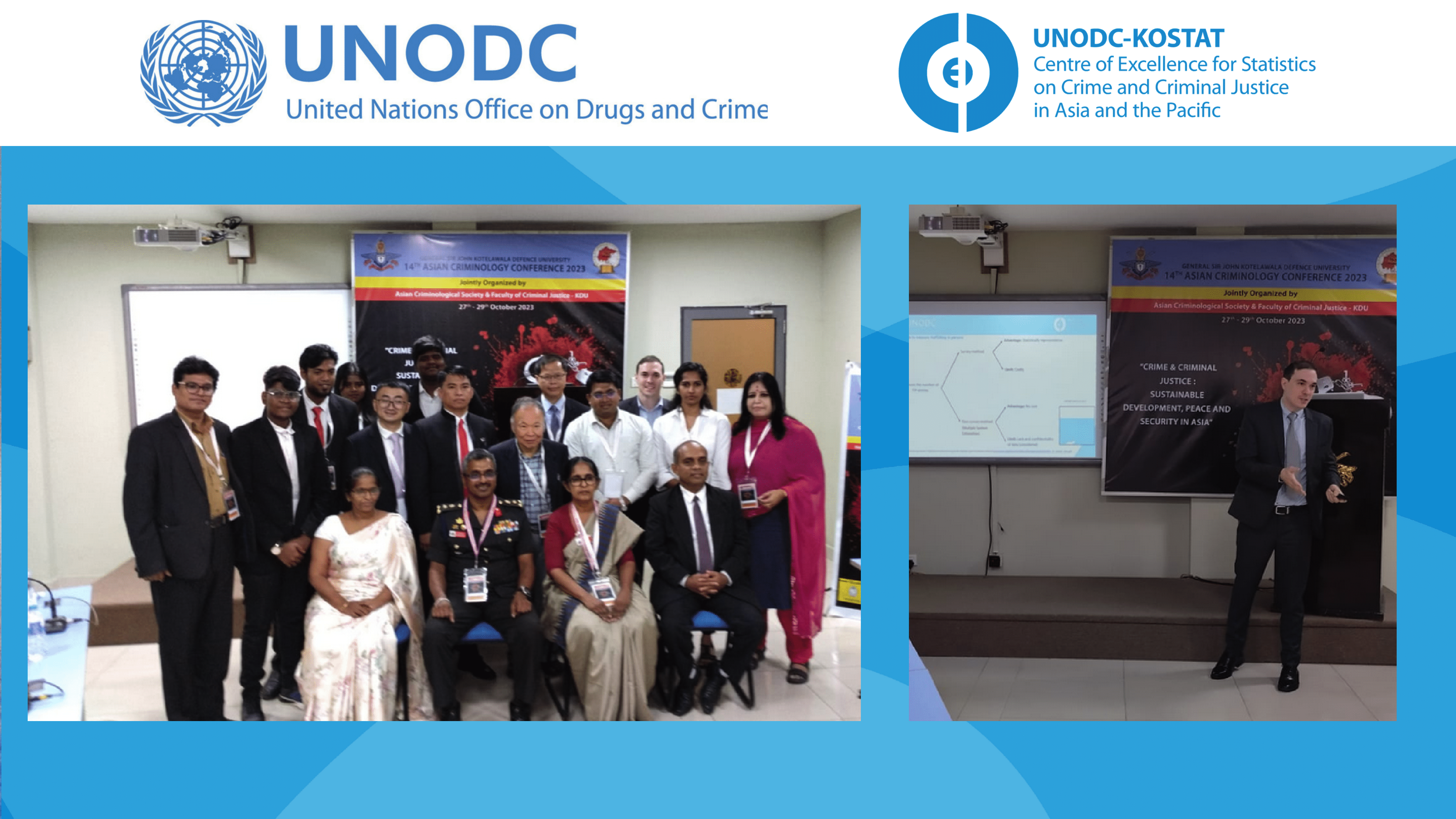
Colombo (Sri Lanka), 27-29 October 2023 - The 14th Asian Criminology Conference was held in Colombo, Sri Lanka, from 27 to 29 October, jointly hosted by the Asian Criminological Society and the Faculty of Criminal Justice of General Sir John Kotelawala Defence University. The 14th ACS addressed the topic of Crime and Criminal Justice - Sustainable Development, Peace and Security in Asia, gathering experts such as scholars and law enforcement representatives from Asian countries to present the latest research findings and keep abreast of criminological developments.
As a regional knowledge hub on crime and criminal justice statistics in Asia and the Pacific, the CoE participated in the 12th ACS where it organized a session on “Measuring Crime for Evidence-based Policymaking: International Initiatives and Data-Driven Innovation”.
At the 14th ACS Conference, David Ravaux, Methodology Officer from the CoE, presented “Trafficking in Persons: High-quality data for a more effective combat strategy”, sharing the main trends of trafficking in persons in Asia-Pacific, as well as the methods to produce high-quality data on trafficking in persons and measure this crime with innovative statistical approaches.
By attending the event, the CoE acquired valuable insights into the latest research findings and stayed informed about criminological developments in Asia. The subsequent list comprises the most relevant sessions in which the CoE participated and engaged in discussions:
Piracy facilitates abduction, murder, armed robbery, drug trafficking and maritime terrorism. In Asia-Pacific, the most sophisticated and funded groups target oil tankers, disrupting world economies. Drug cartels, especially in the Golden Triangle in Southeast Asia heavily rely on the seas to transport contraband due to fewer security checks as opposed to air cargo. These, in turn, finance maritime terrorism which includes piracy and armed robbery. It was shown that fishermen are used by fishing militias for conducting illegal activities through basic tasks monitoring the law-enforcement activities along the coast and facilitating the transportation of drug shipments, by using GPS and walkie-talkies). Japan, Viet Nam and India stipulated Acts to combat this phenomenon: the Domestic Trade of Specific Maritime Animals and Plants Act, the Defense White Paper on Illegal Fishing and the Maritime Anti-Piracy Bill, respectively.
The CoE will continue its engagement with the ACS and academics in the region, as part of its commitment to ensuring that governments have access to the best practices for the production, collection, analysis and dissemination of crime statistics for evidence-based policymaking.
Further information on the CoE can be found here, Twitter @CoE_UNODC and Facebook @UNODC.KOSTAT.CoE.